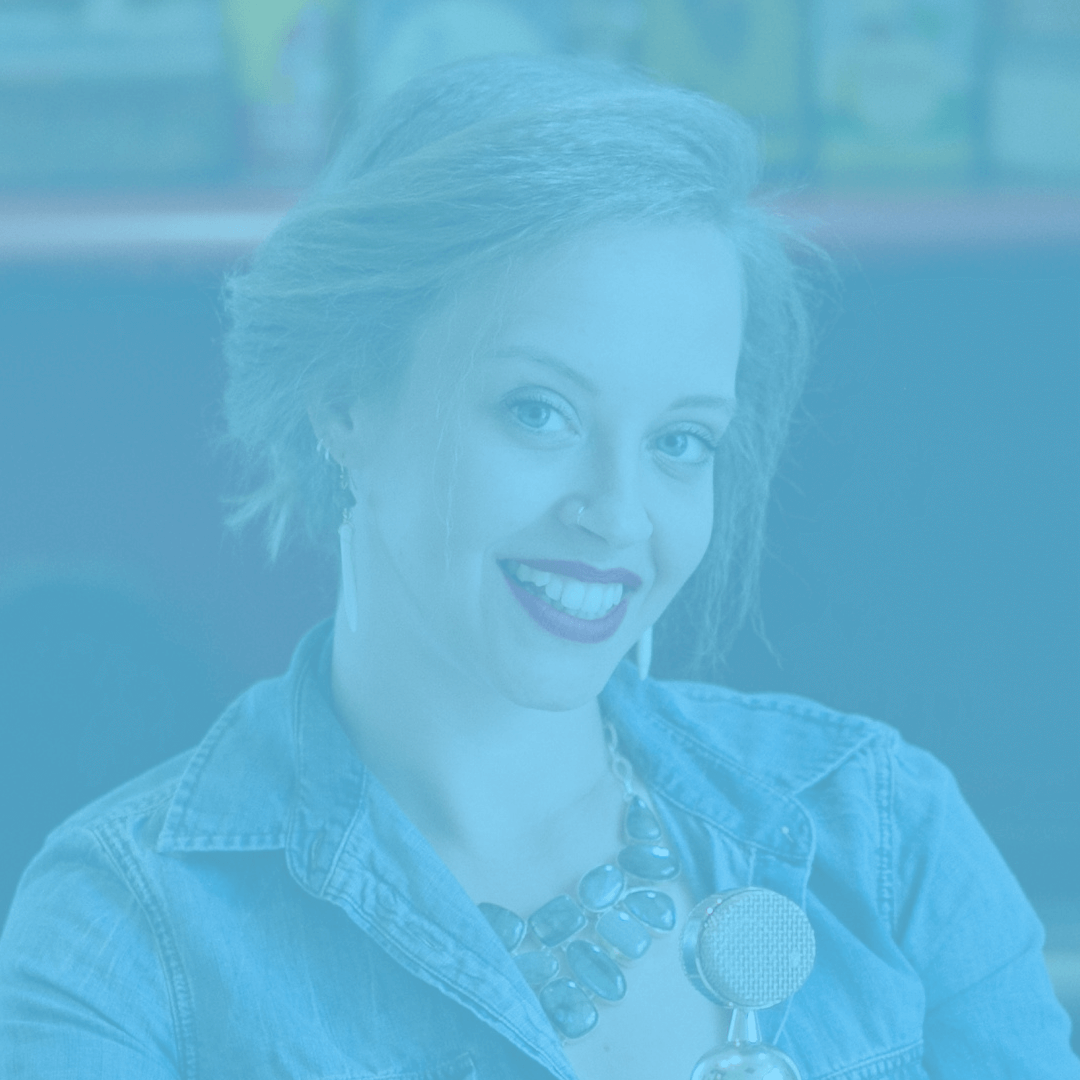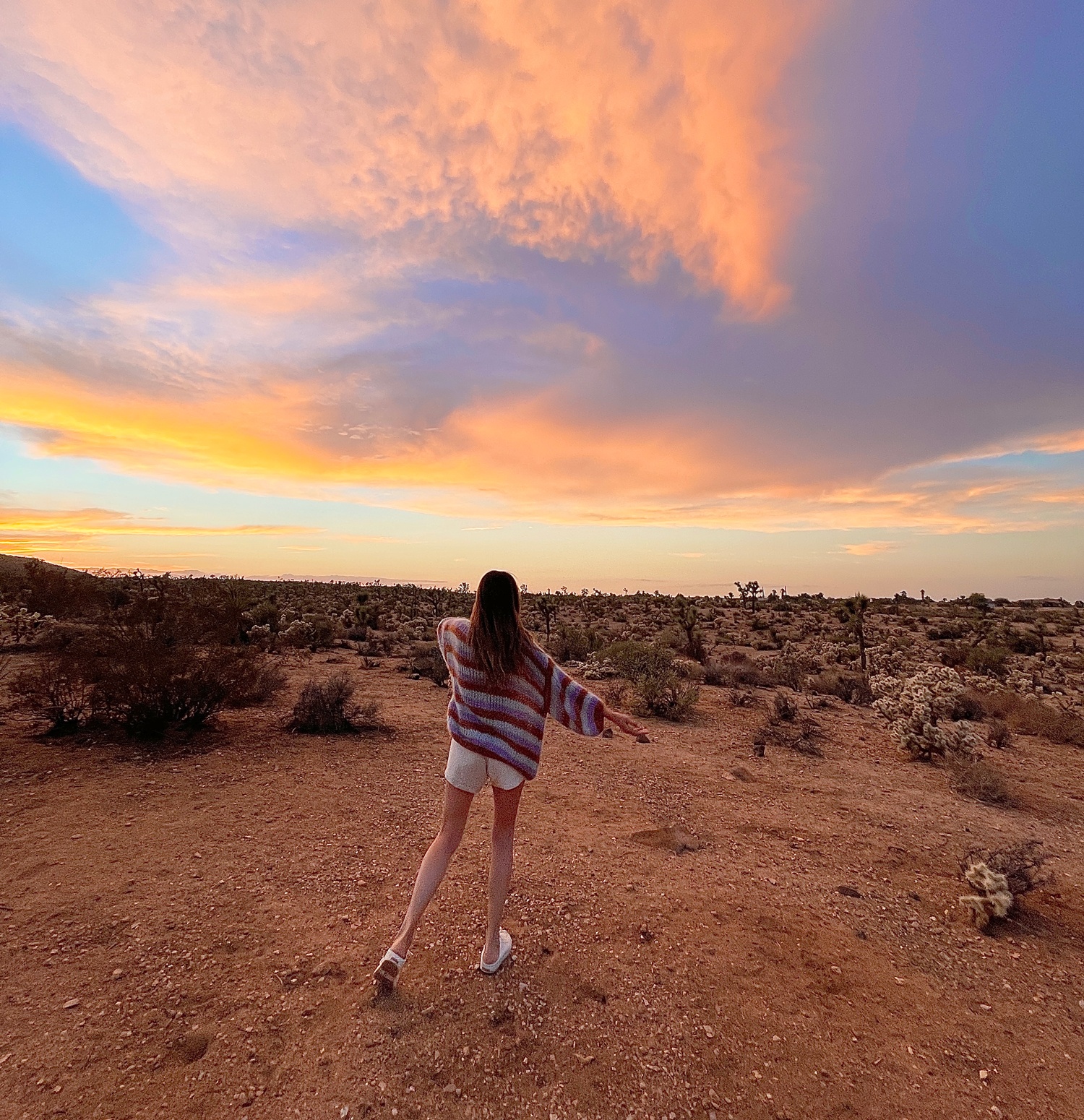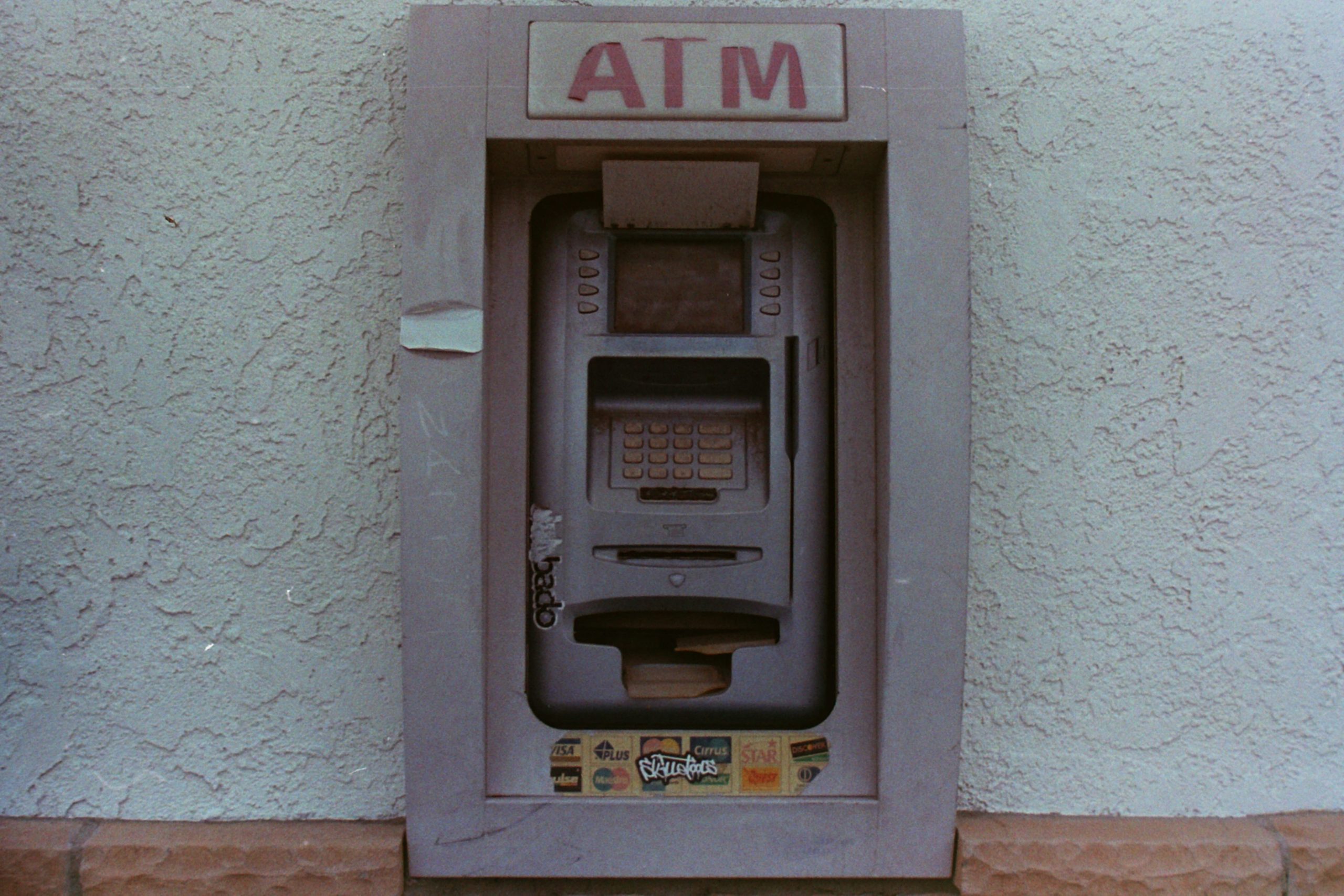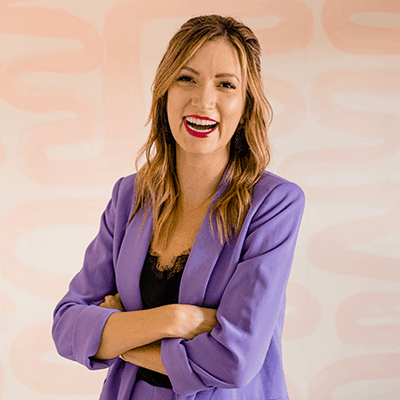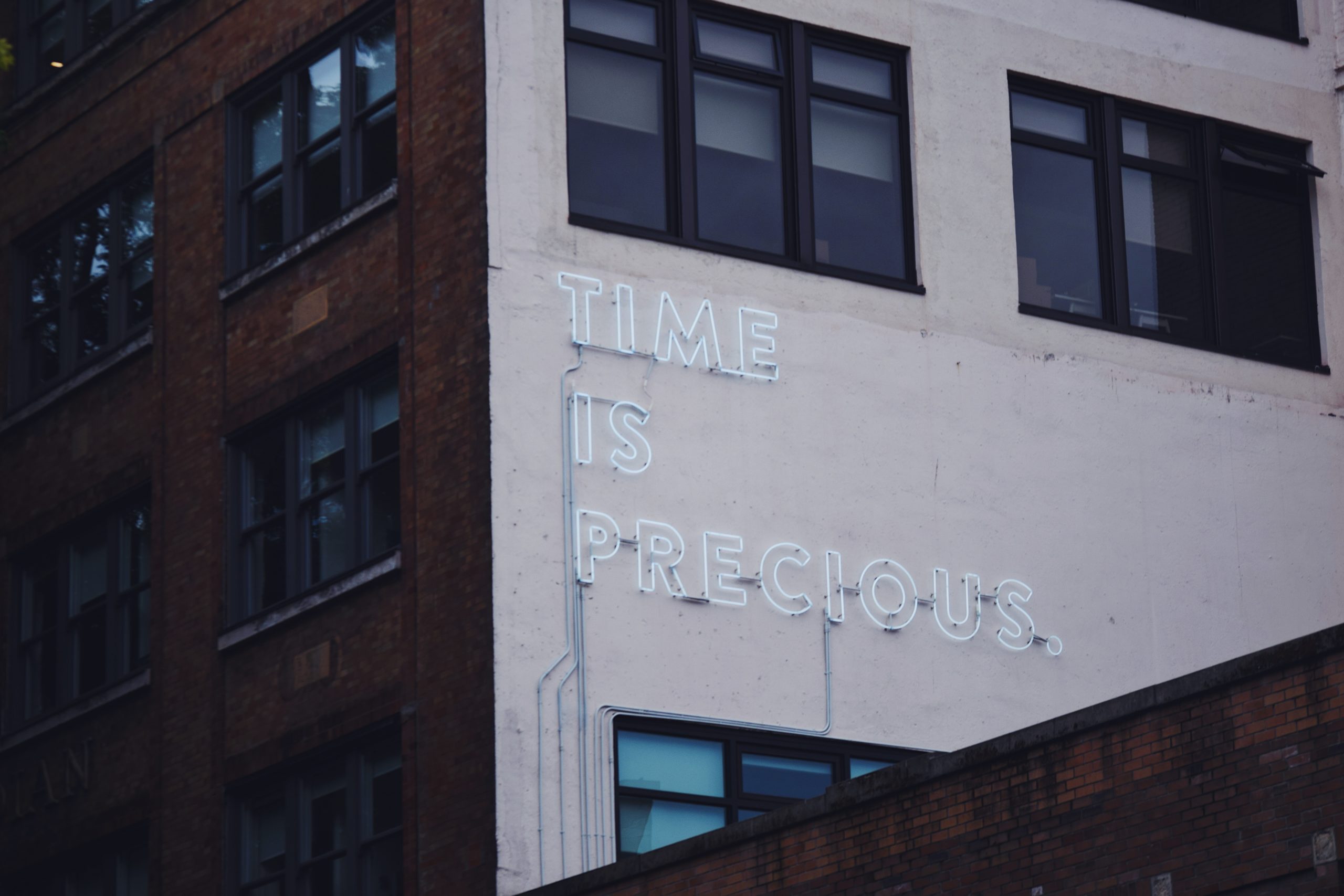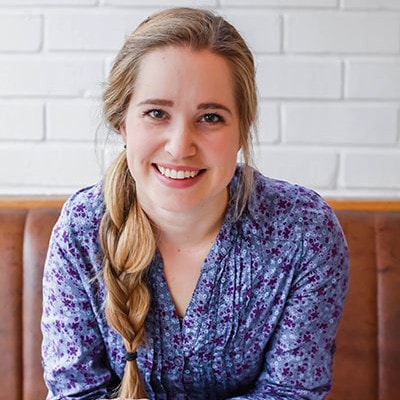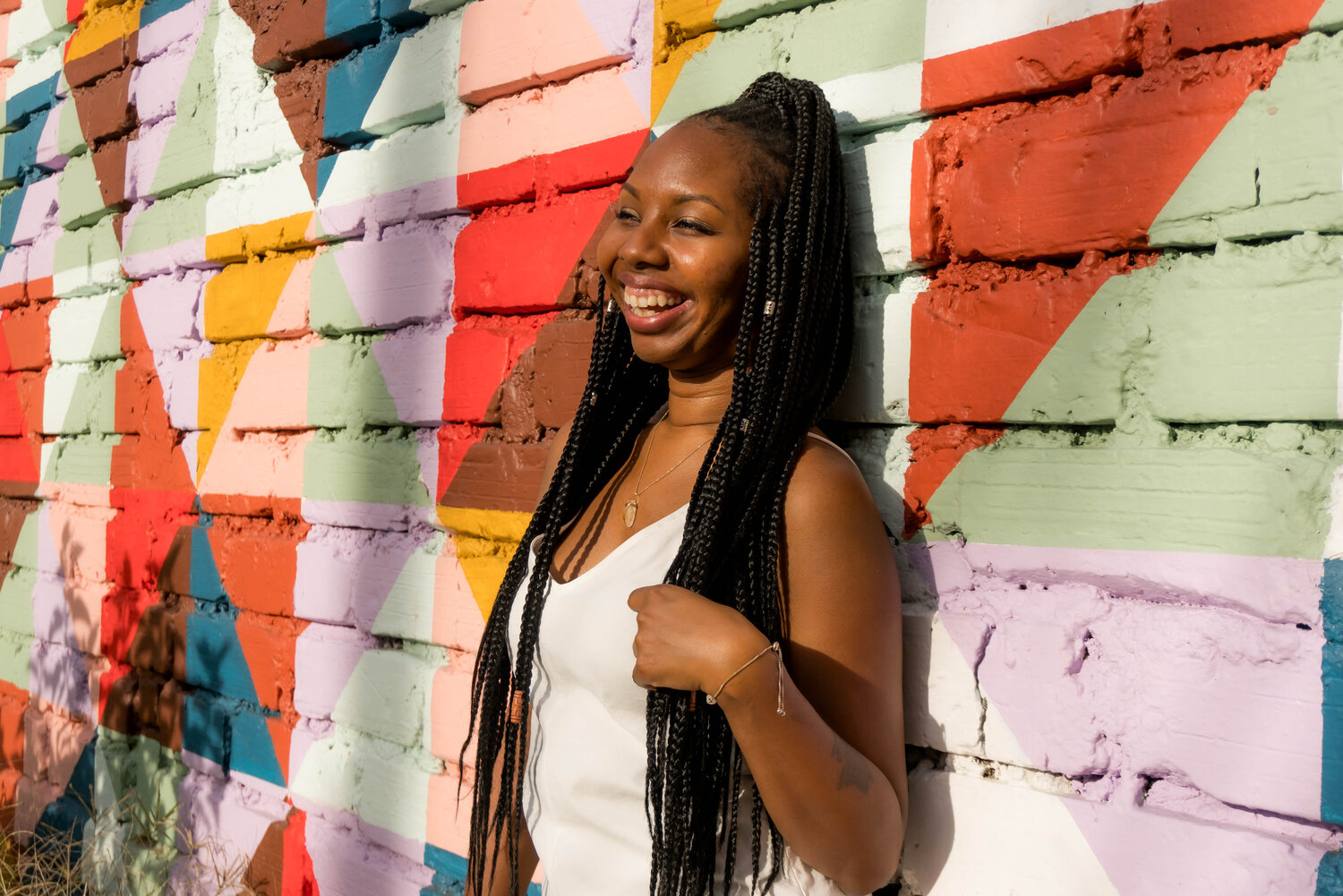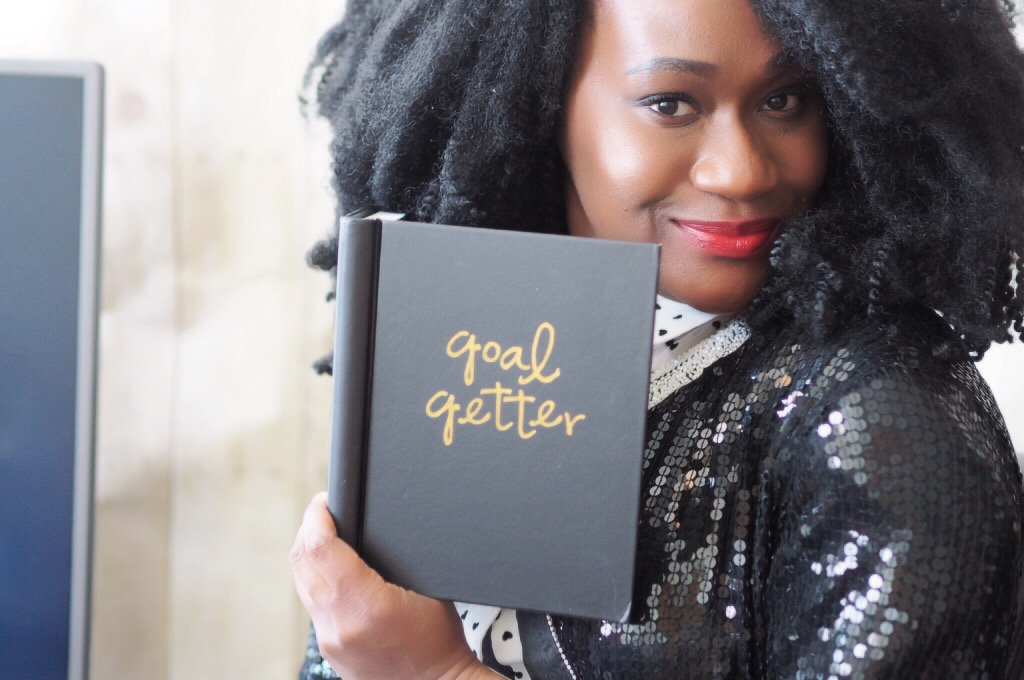I spent a loooong time watching and admiring today’s guest, Emily Thompson, from afar. Chances are, maybe you have too.
You probably know her from her incredibly popular podcast and brand that she co-leads with Kathleen Shannon, called Being Boss. Or maybe as the founder of Indie Shopography, where she helps creative entrepreneurs run online businesses. What I love about Emily is her effortless ability to combine practical business skills with a sense of spirituality and femininity.
With the success of her top-rated podcast (I’m talkin’ a staggering 3 million downloads and counting!), she was inspired to co-author her first book, Being Boss: Take Control of Your Work and Live Life on Your Own Terms.
Throughout today’s episode, we dive really deep into what you can find inside of Emily’s book, including her magical way of setting goals. She also talks about the transformative daily routines that she uses in her life and what it really looks like to live life on your own terms – and how to make it happen!
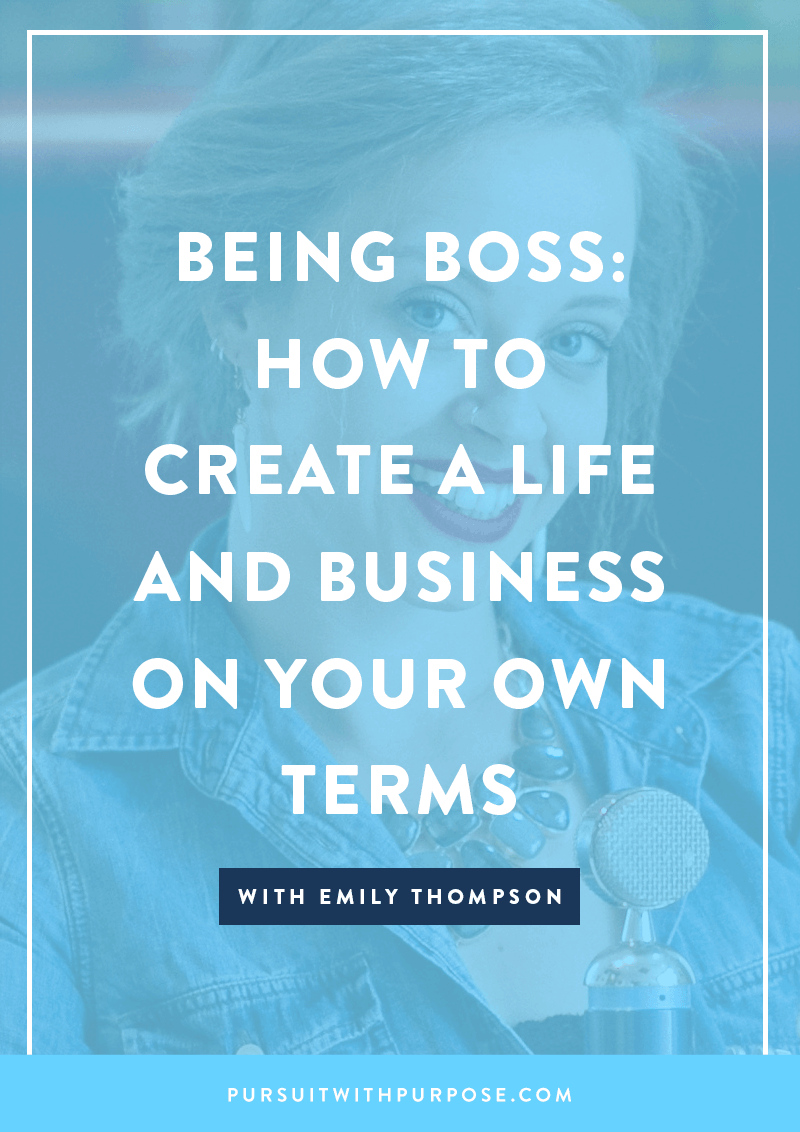
Check out the episode below:
In this episode, you’ll hear about things like…
- How Emily restructures her schedule to maximize her energy and productivity.
- What it was really like to write a book with her business partner and business friend, Kathleen.
- The special 3-step process Emily uses to live life intentionally, and how she helps others live this way, too.
- A deeper look into some of the expectations and doubts she faced when becoming an entrepreneur.
- How Emily’s community has lovingly embraced (and asked for!) more of her spiritual side.
Some Questions I ask Emily…
- Having a business partner seems like it could be tense at times, but you [and Kathleen] always seem to have a great relationship together. How do you work through the tense moments while still being such close friends?
- What are some of the most important habits and routines or daily rituals in your life?
- You bring a lot of woo and spirituality to your brand. How do you use that to guide the way you run your business… and life?
Links from the interview:
- Being Boss
- Being Boss: Take Control of Your Work and Live Life on Your Own Terms, by Emily Thompson and Kathleen Shannon
- Being Boss Podcast
- Emily’s Website
- Indie Shopography
- Braid Creative
- Being Boss Podcast: Episode 51, Getting Witchy with Carolyn Elliott
- Biddy Tarot
- The Wisdom of Sundays: Life-Changing Insights from Super Soul Conversations, by Oprah Winfrey
What do you think?
I’d love to hear your thoughts on this episode. Are you currently pursuing a life and business on your own terms? What specific pieces of this conversation resonated with you?
Here’s how to subscribe + review
Want to be the first to know when new episodes are released? Click here to subscribe in iTunes!
Also, podcast reviews are pretty darn important to iTunes and the more reviews we receive, the more likely we’ll be able to get this podcast and message in front of more people (something about iTunes algorithms?). I’d be extremely grateful if you left a review right here letting me know your favorite part of this episode.
#PursuitWithPurpose
Loving the podcast? I encourage you to use the hashtag #PursuitWithPurpose to show our PWP tribe how you live your purpose everyday. Plus, you’ll get to sift through the hashtag to find other business owners who care about community and connectedness over competition and comparison. And I’ll be reposting some of my favorite images and stories, too. 🙂
Thank you for listening!
Transcript
Read the Interview Transcription HereHello, Pursuit with Purpose fam. So I spent a long time watching and admiring today’s guest, Emily Thompson, from afar. Now you probably know her from her incredibly popular podcast and brand that she co-leads, called Being Boss. What I love about her is that she’s able to combine practical business skills with a sense of spirituality and femininity. Femininity, say that word five times fast. Well anyways, Emily is the founder of Indie Shopography, where she helps creative entrepreneurs run online businesses. She also co-hosts the being Boss Podcast for creative entrepreneurs, which has over three million downloads. Due to the success of her podcast, she recently co-wrote her first book called “Being Boss: How to Take Control of Your Work and Live Life on Your Own Terms”, definitely something that I can get behind. During today’s episode, we dive really deep into what you can find inside of Emily’s book, including her magical way of setting goals, transformative daily routines that she uses in her life, and what it really looks like to live life on your own terms and how to make it happen. I am so excited to share this conversation with you. Let’s dig in.
Melyssa Griffin: Hey, Emily, welcome to the show.
Emily Thompson: Hi, Melyssa. Thanks so much for having me.
Melyssa Griffin: Super excited to chat with you. You have been doing some amazing things with, not only your podcast, but the community that you’ve been building around the podcast and the new book that you’ve got coming out soon. So we’ve got a lot to talk about today. I think it’s going to be really good. Before we dive, I kind of want to just learn a little bit more about you and what was your life like growing up, like as a kid or teenager, and how did that end up shaping who you are now and the career path that you decided to take.
Emily Thompson: Sure. I’ve always been a dabbler, like I like doing different things. I was never one of those people who found a sport or sort of an extracurricular activity and just went at it. I tried everything. From the time I was super small, and still today, like I’m still always just making different things and seeing what sort of things I can get into. I don’t have any sort of loyalties, I guess, to activities. I just like to try things. And so I think that really defines my childhood and my teenage years, where I was just super interested in trying new things and going where my own curiosity took me, wherever that may have been. And so I just did lots of things. I did dance. I did some school, more like learning activities, like geography bee or spelling bees. I played some sports. Nothing that—I didn’t do anything too terribly long. I was always willing to go and jump into the next thing. Maybe that sounds like I have huge commitment issues, but I just like the idea of doing something until I had enjoyed it, until I found it fulfilling, and then going to see how I liked the other things. So that super defines, I think, my childhood and teenage years and even now, as just someone who really likes to try new things no matter what it was. I would give it my all for a minute and then move on to the next thing.
Melyssa Griffin: Do you feel like that has shaped your career path now?
Emily Thompson: Absolutely. I read a couple of years ago—so going through college—I actually have a degree in Geography. I was supposed to go off and do Geographic Information Systems work…
Melyssa Griffin: Wow. You’re probably the only person I know who has ever uttered those words in my presence.
Emily Thompson: Right. At the time, the education was all about what I found interesting at the time. At the time, I had this professor who was super interesting. I’ve always loved being outside and doing outdoorsy things, so geography stuck and I got that education. Immediately went on to do some other things, like just moving on from one thing to the next. Oh, I remember where I was going with that. I remember reading once—so I thought I was going to be a geographer, super excited about it I guess. The Geographic Information Systems stuff was not the most fun, but it was a thing that I was going to get my job in. I remember reading this magazine article one day, talking about how you change your career every eight years, or you put yourself into being a professional in whatever it is, but you always have those shifts. People will go through several different careers in their lifetime. I remember, at that point, thinking well I just went through four years or I guess five years—it took me five years to get those educational pieces in. I was like three years is kind of all I have left of this thing, but it also gave me permission to build something, that again, I found interesting at the time. I ended up moving into doing jewelry design and selling on Etsy, which got me into online business strategy, which then took me into designing websites and doing online business coaching, which then fed into the podcast.
So for me, I remember reading the article and that being sort of a mindset shift of like I don’t have to use this degree forever by any means. I have permission to go where my interests lead me. It’s acted as a force of snowballing, where everything that I’ve done has led into the next thing in a really beautiful way that doesn’t make a lot of sense on the outside, but makes a ton of sense to me. As it weaves, snowball that into the podcast, bringing all of that expertise and creative drive into the content that we’re creating over at Being Boss, all the interviews that we do with really amazing creatives who are doing it, who are living their lives and selling their work. They have similar stories where they were the same people who just did what they were interested in and ended up finding themselves on this seriously windy path to their version of success. But I did find that as permission to—I don’t know, not feel bad about not being like my parents or grandparents who had a job that they kept for 40 years until they’re retired. I could be creative and have a windy path and enjoy it all along.
Melyssa Griffin: What I love so much about that is, I think we’re kind of conditioned to this lifestyle of you need to pick a major when you’re 18 and have no idea what you actually want to do with your life, and then you need to do this career for the rest of your time on this planet. For most people, like you were saying, I think we do go in those waves of maybe this isn’t what I want to do for 50 years and maybe I have these other things that I want to incorporate. So I like that you figured it out early that that’s what life is about, is just going through these waves, and it will lead you to the places that you ultimately want to be in. I have this mantra. I have like a similar outlook on it too. My mantra was always move in the direction of what feels good. If it feels good and this is what I want to do, then I’m just going to do that without thinking what’s my 10 year plan and how does it all fit together.
Emily Thompson: Right, I know. I feel like whenever you have that creative spirit, that drive to just do what interests you, 10 year plans are super—they will box you in, in a way that you lose your creativity. The moment I was able to release that—and again, it was about the time that I read that magazine article stating that you will change your career every eight years. It clicked for me that you don’t have to work in that way, where you do make that decision that defines the rest of your life. You can make decisions all along the way. Kathleen and I are always talking at Being Boss, about this idea of learning things along the way on your journey and putting them in your tool belt, and how they will lend some importance and credibility and usability to your life in the future, but you have to collect them right now. If you’re doing the same thing every day for 20 years, what new things are you adding to your tool belt? Probably not very many things, but if you are putting yourself in new situations and trying new things, you’re able to pick up things along the way. They may not be things that will contribute to your business, but maybe they are things that contribute to your life. I never used that Geography degree, but I am an amazing traveler. I can travel and experience cultures and places in a way that most other people can’t, because I do have education that added some really fun life tools to my tool belt.
Melyssa Griffin: I like that. I like the tool belt example because it almost seems like you’re taking something from every experience whether it’s good or bad or you use the degree or not. So I like that a lot. You’ve got a new book coming out soon called “Being Boss”, of course. How is this book different from other business books out there?
Emily Thompson: One, it’s beautiful. One of the things that Kathleen and I went into this book with, was we didn’t want it to look and feel like a regular business book. We wanted it to be something that you would want to put on your coffee table, that you’d want to come back to time and again for inspiration, or if you’re having an issue in your work or in your life, being able to come back and go back to those points in the book. So part of that was making it a really beautiful book. Kathleen and I both have backgrounds in design, so that was really important to us. It’s also, I think, just from a very fresh perspective where we’re not like dudes with multimillion dollar businesses who are just writing a how to book on the blueprint that we’ve created to do the thing. We are sharing experiences in a really open way that allows you to take the bits that we found and apply them to your own life. So it’s less blueprint based and more around these topics or ideas that we found from interviewing hundreds of creatives and talking to bosses all around the world in so many different disciplines, as to how it is that they’re able to define and go after success on their own terms. So we’d like to think that it’s sincerely more fresh and applicable, but also really beautiful in a way that it becomes a part of your life, or at least that’s the goal.
Melyssa Griffin: I like that. That sounds awesome. It’s almost like a mix of your stories, plus kind of this fresh, vulnerable perspective with business advice. I like that, and a beautiful design too. I’m excited to check it out when it comes out. So you have a podcast co-host and business partner, Kathleen. What was it like writing a book together? Because writing a book as one person seems hard enough, and I can’t imagine like two cooks in the kitchen writing this thing. What was that like?
Emily Thompson: Right. Well, leading up to it, everyone told us that writing the book would be the hardest, most painful process that we would ever endure and that we’d better prepare for it and all of these things, and we were. We were like mentally preparing. We had taken off the month before. It was December, and Kathleen and I take December off. We were going to start writing the book in January. So we had that month off of just chilling and collecting ourselves. We started writing the book and it was the most fun process Kathleen and I have ever gone through, and definitely the most fun work we have ever done, which I hope comes out in the book for sure. But it was significantly more joyful than either of us anticipated, which made it even more joyful. It was so much better than we thought it would be, but it was a blast. We spent the first couple of weeks really trying to find our jam, in terms of how the writing process would work, if we were going to divide it up and write separately and then bring it together, and whose voice would it be in, and all of these little technical issues we had to work through. But once we found our flow, we were able to get in and bust it out really quickly and deliver a sincerely clean manuscript, because we found a place where Kathleen and I work really, really well together. We were able to make each other’s writing better. We were able to bring our collective voice to the book in a really beautiful way, I think. We were able to do it together which was a ton of fun. So we were told it would be terribly scary and super painful, but it ended up being the most fun work that either of us have ever done.
Melyssa Griffin: I love that. I almost feel like when somebody tells me something is going to suck and be horrible, something inside of me fires up and will do anything to make it the best experience. I want to prove you wrong.
Emily Thompson: I agree. I completely agree, but like I also think—and I don’t know if writing a book alone will be as fun. I don’t think it will be, but Kathleen and I definitely found a really great place where we’re able to bring out the best in each other, to really massage things in a way that we are really saying what we mean, and had a lot of fun. I laughed more during that process. I would leave the studio, and David, my partner, would be like, “Were you in there working?” I’m like, “Yeah, we just finished a chapter.”, because I was laughing the entire time. It was such great fun.
Melyssa Griffin: That’s so cool. I want that. That sounds really fun. It seems like you guys have perfected the art of having a business partner and best friend in one. How do you manage that? I feel like having a business partner would be, there would be like the tense moments and you’re working on some really amazing things and big things that are going to a lot of people. How do you create such a great relationship together in that way?
Emily Thompson: We talk about everything, and we have to, and all the time. It’s not perfected by any means. I think we will continue to perfect it forever, but it’s a long process of talking about everything good and bad, hard or easy. It’s definitely gotten easier as we’ve gone along, but that’s also almost made the hard conversations harder, because as the business grows, we have to talk about more difficult things, but we’re able to do with them with so much more grace and ease now because we’ve spent so many years building up to it. So really just being super open about everything, having conversations about everything, even if conversations aren’t needed, just always checking in and making sure we’re on the same page with things, making sure we have roles defines, we know who’s responsible for what. It’s really important. We definitely have created a really great relationship and it has not been easy, but it has been fun. I think it will continue to be difficult and trying in like the ways that make us both grow, but fun in ways that it makes it totally worth it.
Melyssa Griffin: I like that. What did you learn about yourself from writing a book?
Emily Thompson: Oh, that’s such a good question. All kinds of things. I think the biggest one for me, because I’ve always been such a go getter, like I’m always running on all cylinders and all moments of my life are filled with doing something usually, writing the book was a time in my, especially career, when I had to pause. I had to stop and be really intentional with making sure that the energy that I put into those moments when Katherine and I were together writing, make sure those moments were as filled with energy as possible. So what that required of me was to rearrange my work and life in a way that I was prepared to sit down and write, because I found really early on that I couldn’t have a full day of answering emails, and customer service, and talking to the team, and designing websites, and doing all the things, and then sit down and write anything of quality. It would not come out of me. I also found that if I came in and worked, and then wrote first thing in the morning, I had no energy left to do much other work for the rest of the day. So I was able to restructure how I was working in a way that made sure that those moments of writing were as filled with energy as possible. With that, also entailed, was that I had to be more intentional with living my life. I had to do the things outside of work that gave me the energy to come in and write whenever I needed to write. I had never really experienced that in my work before, like this idea of a really, really putting life first so that I could come in and do the work, because whenever I was designing and developing websites, I can just come in and do the work. I don’t really have to mentally prepare for that, but writing was, energetically, a very different kind of work, and I had to prepare in a very different way. It caused me to restructure my life and work in a really draining way, and learn that one, I had to do it, and two, that I could do it. I could restructure how I lived and how I worked to give me really high impact moments of working and plenty of free time to live my life.
Melyssa Griffin: I like that a lot. I like how you mentioned that you needed to live your life and create that life in order to have the energy to come back, because I think in any kind of business, a lot of entrepreneurs think like if I just spend all my time working on this thing, then it’s going to be successful. And then we forget that we also have this personal life that we need to nurture and fulfill too. Do you feel like now that you’ve had that experience, you want to bring that structure into your entrepreneurial life now or do you think you would want to go back to the way you were doing things before?
Emily Thompson: No. It’s definitely pulled over quite a bit since finishing the writing process of the book, which took about three months to get it all written out. So it was three months or less of living that kind of life. Whenever we were done, I went back into designing websites. We have redesigned the Being Boss site. We’ve been working on developing, creating content. So I basically did jump back into the work that I was doing before, but I was able to bring more downtime into my work because I had seen how valuable that could be. So things like making sure I have no meetings at least two days a week, whereas before, I was making sure I had no meetings one day a week, and making sure— like most of the summer, I don’t think I ever worked a full work week, like having days that were really open for me to live my life so that I could come in and be more impactful with the time that I have here to work. It has Kathleen and I definitely looking forward to writing the next book, whatever that may be, because we both recognize that time in our life and work, as a time when the work that we were doing, we felt the best about. Our life was super complimentary of how great we felt doing the work. It’s something that’s hard to do with all the other types of work that we’re doing, but we have been able to bring pieces in and we both look forward to writing the next book.
Melyssa Griffin: Cool. That’s exciting. So this is a perfect segue, because the subtitle of your book is “Take Control of Your Work and Live Life on Your Own Terms”. So is there ever a time in your life where you felt like you weren’t living life on your terms? What did that look like?
Emily Thompson: Not very often. I have always been super rebellious of things that did not fit in my line of how I wanted to do things. So I honestly can’t think of too many times where I super veered of my own path…
Melyssa Griffin: Yeah, I love that.
Emily Thompson: God bless my parents. And not that it was like wild and rebellious in the traditional sense, but really just this idea of I’ve always lived with this purpose of I’m going to live my life exactly the way I want. Kathleen is super similar. We both, that’s a common thread we share for sure, where we are both very good defining how it is that we live our life. However, I can think of a couple of times when things started to veer off a little bit. I think the last real job I had, I quit because I saw it as a place where I wasn’t living my life the way I wanted to live it, or even like trying to finish school. I recognized that Geography degree was not going to be something that I used professionally, and came really close to not finishing it because it wasn’t me living the life that I knew I was going to live. I did finish it and I’m very glad that I did. But overall, I’ve been pretty good at living life on my terms. And Kathleen as well. I think that’s the energy that we’ve infused to Being Boss brand. I think because we’ve always been so good at living it and course correcting quickly whenever things do go off path, that there haven’t been too many ultra-huge moments, and always very fast course correction.
Melyssa Griffin: Yeah. I mean that’s freaking awesome. In your book, I know you talk about helping the reader do that, live life more on their terms. What are some of the ways that you help people work through that? Maybe if somebody isn’t living that way right now, what do you suggest they do?
Emily Thompson: Sure. I think there are a couple of things, but I think it all comes down to releasing expectations that are put on you from other people. Again, I’ve always been rebellious enough that I don’t really care much about what you think about me. I know what I think about myself and that’s all that matters. And again, Kathleen is very similar in that way. But I think that’s sort of the foundation of it, is it’s not about what your parents expect of you, and it’s not about what your friends expect of you, and it’s not about what your boss or a mentor expects of you, like spoken or unspoken because there are tons of unspoken expectations in the world. It’s only about what you want. That releasing of expectations is really difficult, and even for myself, like I am well aware that there are some that I’m still carrying around for sure, but it’s identifying them and releasing them and redefining them for yourself. That three step process can be super difficult, but I think is that the foundation of living your own life the way you want, it’s releasing the expectations that aren’t yours and redefining them for yourself.
Melyssa Griffin: Yeah. I like that. Were there are any expectations that were harder for you to shed?
Emily Thompson: Yes, for sure. I think, I mean, that education is one of them, which I totally get. But even before I had—or while I was in college, I had my first business. While I was finishing college, I had my second business. I started my third with my web design business just after. I knew that I could make money in whatever way I wanted and that a degree wasn’t really going to help me that much. But for me, that was an expectation that I went into without even realizing it. You finish high school and you go to college. I definitely recommend college to everyone more or less, unless you’re a super special case, because it is such a great life experience, even if you’re just going to learn something you’re interested in, which I think is what most people should do. But that was one for me that I can definitely pinpoint as probably the largest one, where I was expected to go to college to get a degree and then to use it.
Melyssa Griffin: Where did you feel that expectation come from, in yourself or from your parents?
Emily Thompson: Parents and just society at large. Everyone in high school, you start applying at about the same time and you’re applying for scholarships, and you all get accepted. You have parties and all of the things. It was just part of the social norm to do that, which I totally get and respect in some ways, but I never did sit down and really think if that’s what I wanted to do or not. So that was one for me. It wasn’t even an expectation that I put on myself, it was just one that I blindly followed the crowd. Or I also think with me starting my—especially my web design business in a very dude centered profession, and one that I was not traditionally educated in, that was one where I know people had the best hopes for me, but there were expectations that I should be going out and getting a traditional job with this degree that I just got. That one I didn’t listen. I was able to release very easily. I do remember early on, having moments of thinking maybe everyone else was right, because starting a business is super difficult, but it is one that I never did backtrack on. I’m very glad that I didn’t.
Melyssa Griffin: I like what you said, where you said it wasn’t an expectation I put on myself, I was just blindly following the crowd, because I think it’s such a good reminder in something that we all kind of do in different areas of our life, and just something for us to think about how are we doing that right now in our lives and where can we break that chain of contact.
Emily Thompson: For sure, because once you can break the chains, that’s when you’re living your own authentic life, and you’re following the path that is yours and not the one that someone has laid for you, which is some powerful stuff.
Melyssa Griffin: It totally is. So earlier, you mentioned your purpose. I’m curious because you’re doing so many amazing things. You’ve got this great community. What do you feel like your ultimate purpose is in your life?
Emily Thompson: These days I feel like it’s building my life, more so even than helping others do theirs, which is definitely part of it. But I think like the core—and I think this should be everyone’s purpose, like really deep down at the core of it, is building a life for yourself that you are most proud of. That involves doing whatever work that it is. I don’t know that my purpose is being a podcaster, like that’s just another one of those roles that I’ve fallen into along my path. It’s a large set of tools that I am sticking in my tool belt. I love working with creative entrepreneurs. Sometimes I wonder like is this what I’m meant to do, and perhaps for sure, but I try not to attach myself to any of those things too terribly much because my interests can change super easily or the platforms on which I do the things will shift consistently, all of these things. I know that my purpose is building my life in a way that I am most proud of. Right now, that does include the book and it includes the podcast, and everything we’re doing through Being Boss. But that’s such a small part of it. It’s such a small part of what makes up everything that I’m doing, that I would have to say my purpose is much larger than that, but also significantly smaller than that, and that it’s really just me being happy with the life I’m building and living.
Melyssa Griffin: I think, like I love that perspective because I don’t feel like most people would say that. Most people would go for the external thing, when really the external thing can’t even happen without that internal bliss and feeling good all the time like you said. So I love that. One section of the book is about a magical way of goal setting, which sounds super cool and exciting to me. Can you tell me more about that?
Emily Thompson: Absolutely. It’s called the chalkboard method. This is a plan that Kathleen brought to the table. There are several—one of the great things about building a brand with someone, is that we get to bring our own tools to the table, in terms of what is it that we’re building and how it is that we can help people. The chalkboard method was one that Kathleen brought to the table. I remember her telling me about it. The idea is that you have to make space for what it is that you want. The chalkboard method is a very large in your face way of making space for what it is that you want. So we have our creative entrepreneur crowd do this, where we tell them to paint a big chalkboard. We’ve had people use all kinds of methods, so don’t get stuck on the chalkboard, feel free to get creative with it. But you have a large chalkboard and you draw blanks, like lines on your chalkboard for whatever it is that you’re wanting. So if you want 10 clients this quarter, then you’ll draw 10 blanks on this chalkboard. It has to be in a place where you’re seeing it consistently and you can consistently be working towards it, because one of the things with setting goals and having spread sheets or whatever it may be, is you’re not seeing them consistently. So if you’re creating these big visual spaces that you’re going to be looking at every day when you come in your office to get to work, you’re going to be more proactive. You’re going to be more proactive about working towards it and accomplishing those goals. So you’ll see your big 10 blanks glaring at you and you’ll jump into writing that email newsletter that’s going to pitch your services or whatever it may be.
So it acts as a visual reminder to do the work, which is really important, but there’s also maybe a little bit of magic in it, to where you’re making space for the universe to see what it is that you want as well. You are then attracting what it is that you want. One of the things we talk about in the book is creating a mantra or sort of a charm for your chalkboard to more accurately describe what it is that you’re wanting to attract into your business or into your life. It’s a tool that we’ve used several times. We like to credit for getting us our book agent even as a well. I remember Kathleen saying she was going to do our chalkboard for Being Boss. She came and told me that she had drawn a little book on there because we’d been talking about writing a book. Within a couple of days, like two or three days, we had our book agent email us, and she was totally the right one, and all these things were like magic. It totally worked.
Melyssa Griffin: I love that.
Emily Thompson: Yeah. So it’s just—it’s a really fun visual in your face way to make space, which requires defining what it is that you want, and because it’s in your face, you’re going to be more consistently working towards it, which is how you get what you want.
Melyssa Griffin: It seems like a really actionable form of manifesting the things that you want to have in your life. I like that. So you literally take a chalkboard and you draw either blanks or a picture of what you’re looking to create in your life?
Emily Thompson: Yes.
Melyssa Griffin: And then reminder that you see it all the time is what fuels you and kind of couples that with the universe bringing it to you. You take more action towards it and then it all just ends up working out.
Emily Thompson: Basically, easy peasy.
Melyssa Griffin: Yeah. That’s awesome. I like that. I like how simple it is too. You mentioned that you recommend having a mantra for what you want to bring into your life. What are some examples of goals maybe and mantras that go along with them?
Emily Thompson: Sure. I think the best example and the one that always comes to mind is, one that Kathleen used whenever she first created her chalkboard. She was doing this for her branding agency, Braid Creative. They had drawn some blanks on their chalkboard whenever they’d first decided to do this. I think they got a couple of clients that weren’t the dreamiest in the world. They were like well what good is filling blanks if they’re not actually the kinds of clients that you want to have. So they created a little mantra of attracting dream clients with cash. So the idea that you’re getting super specific again with what it is that you want to attract, so that you are actually attracting the thing you want and not just filling space. Whenever it does come to manifesting, the more defined you can get and more specific you can get, the better it is for actually getting what it is that you want. That defining process, I think, is part of the magic of getting what it is that you want and just what you want, not somewhere in the ballpark.
Melyssa Griffin: Such a good point because I think we have this tendency, with any of our goals, to kind of set the I want to have a book or I want to have more clients, but without really thinking about what would it actually look like to have the perfect, most wonderful version of this. Sometimes it almost feels we’re willing to settle, like I’ll just take any clients just to make it work. But I like that, of defining what you really want and then attracting that and making that happen for yourself.
Emily Thompson: Yeah. You also think about those actions that you take. If you’re seeing those 10 big blanks and there’s no definition to it, and you write that email newsletter, it’s going to be different from the email that you write whenever you know exactly the kind of person that you’re trying to attract. So there’s a very practical element to getting that clear as well.
Melyssa Griffin: Yeah. I see that too. So going off of that, are there any habits or daily rituals or routines that you do in your life, that have positively impacted you?
Emily Thompson: Not so much daily, I don’t think. One of the things that Kathleen and I do, and have done together for several years now that I definitely see as shaping how it is that we work, but also how it is that we grow as people, because one of the things that we sort of joke about sometimes is, there is no better personal development tool than your business, period. You want to have pinpointed to you all of your strengths and weaknesses and be forced to overcome them when needed. Start a business and you are going to have the biggest, most impactful, personal growth tool right there at your fingertips.
Melyssa Griffin: I couldn’t agree more with that.
Emily Thompson: Right. So one of the things that we’ve been doing for a couple of years is we set monthly intentions and then we share them with each other. So we see intentions as the way in which you take action or you do anything. These can align with your values. So for me, I value freedom for example. If I have a month where I set the intention of freedom, then I will go through that entire month, like seeing where freedom is showing up in my life or seeing where I can grab more of it, and sort of living life in a way for that month where freedom is at top of mind. We’ve been doing this practice together for several years now and we share it with each other. So it’s not just something where we do individually and we’re not held accountable except to ourselves, all those of things. We’ll actually have conversations about it once a month. Mine is this. What is yours? and how do you plan on practicing that, and how is it already showing up in your life and where do you want to bring more of it in, whatever it may be. I think that this practice has been one that’s really brought to the forefront for us, how powerful, one, our relationship is, and not just in business, but like as human beings, but two, how it is that we can use that to grow our businesses, because quite often, we’ll have intentions that are reflected by our calendar for the month. So about a year ago, we had a speaking engagement, several webinars that we were doing, just several times when Kathleen and I had to be on point. Kathleen decided to take on the intention for the month of being articulate and really practicing saying what it was that she meant, and all of those things. So it’s a practice that really pulls into our personal lives, but can just as easily affect our professional lives as well. So for me, I think intention setting is the most powerful practice and routine, but really has sort of become a ritual, where Kathleen and I hold those moments of discussing our intentions, pretty sacred. Those are pretty important conversations that we have, and diving into what they mean for each other, and then reflecting back as to what they mean for the other one and how those insights can help. Intension setting has become one of the most powerful tools that we have for going at our business with intention, but also going together as partners of a business, and then personally as people who want to be better people.
Melyssa Griffin: I like that as a practice with like your business partner or your team, or even your partner in your personal life or friends. I like that a lot. I think it almost goes back to this idea of defining things like you were talking about earlier. It seems like you’re really good at doing that and bringing that definition and intention into everything that you do, and seeing where you can improve or where you’re kicking ass, and how to honor that intention that you bring. I like that.
Emily Thompson:Thanks. It’s a fun practice that we both enjoy. and we get our bosses in on it as well. It’s one where, again, you’re right, defining and then practicing those two things I think are super key for living and working however it is that you want.
Melyssa Griffin: So I’m curious, with the Being Boss brand, you bring a lot of spirituality and woo into what you do. And so I’m curious about that, did you ever have any pushback from your community about bringing those concepts into your brand?
Emily Thompson: That is so funny that you asked that because it’s actually been the exact opposite, where…
Melyssa Griffin: Really?
Emily Thompson: Yes, where Kathleen and I were not going to at all, because we’re both super practical and like let’s get down to it, do the work, like no messing around, nobody’s got time for that. We were not going to. Whenever we were doing some branding exercises very early on, we sort of played with the idea of doing it. We were like no, that just is not going to fly, we’re going to keep the straight and narrow for sure, super clean, we’re legit, all these things. And then what we found was that our people actually wanted more of that. So we had our first Being Boss vacation, which is an event we have every year. We had our first one three years ago in New Orleans. We went there because we love the city, also it sorts of feeds that need for woo that we have. We were sneaking off getting Taro readings and not telling anyone about it, because again, we’re not bringing that to the table. That’s not what Being Boss is about. And then we found out that everyone not only wanted their own Tarot readings, but wanted to talk about it, and where to get the best crystals, and like tell me what Oracle decks you’re using. We were like, “Wait a second, what? Are you serious? Because we’re totally into this stuff, but we didn’t think that you guys would or that it would negate sort of the, not like professionalism, because it’s not really what I’m trying to say, but it will make us maybe a little less credible as women who are trying to teach business or whatever it may be. What we found is that our tribe, the people who are most attracted to us are totally in it, or at least what we call woo curious, where you’re interested enough to give it a go.
So it’s actually relatively, slowly come into our brand, and really only as much—actually, we could probably bring it in significantly more. I think Kathleen and I are still tiptoeing around how much it is that we should bring into it. So I think it’s funny that you do bring that up, because again, even now, it’s not something that we’re super consciously trying to bring to the forefront of our brand. I don’t think we could be authentically building a brand that is us if we weren’t to bring it in on some level, because that absolutely defines mine and Kathleen’s relationship and us as people in very real ways, where we’re absolutely sharing what our card of the day is, or we are absolutely asking what that past life reading was about, or whatever it may be, behind the scenes. But we have been—we were super conscious about not bringing it into the brand early on, and have only brought it in as our crowd has proven that they’re super hungry for it.
Melyssa Griffin: What do you think that you both did in order to create a tribe that was interested in that, without ever talking about it?
Emily Thompson: I have no idea. I’m just going to call it luck and maybe some universe action at work where we were just all brought together because we all have these things in common. I’m not sure, I think probably dipping our toes into those conversations. I can think of several episodes that we did pretty early on that we felt were super, like outside the box, and we were totally going there, and expecting those episodes—one in particular was an episode we did with Carolyn Elliott, which was really great. We also had Bridgit on from Biddy Tarot. We’ve had a couple of more woo or esoteric topics come in from people that we were interested in talking to from a boss perspective. So not even from like a spiritual esoteric perspective, but we wanted to talk to people in those fields about the business of doing business. And then whenever we found out that what also super interested people in those topics weren’t even the business of doing it, but actually the more woo side of it, we decided to start bringing it in a little more. So I think it was just probably dipping our toes in, and people finding that content and being super drawn to it, and then asking for more of it. We get requests all the time to interview people who design Tarot decks or have really great psychic reading businesses’, and those sorts of things. We love it. So I think it was just dipping our toe in and from a different angle, because again, we weren’t having these people on to talk about their spiritual views by any point. We were talking to them about email marketing strategies and those sorts of things. What really excited people was their actual work in spiritual professions.
Melyssa Griffin: Interesting. I wonder if part of it too is like yours and Kathleen’s ways of being. Maybe people listen to your podcast and then just feel, even before you started talking about these things, felt this sense of like spirituality or groundedness in these beliefs that you may have too, and just latched on to you at that time. But I wonder, yeah, that’s a really interesting topic. It’s really cool that you guys are using that more in your business too. It definitely sets you apart. So this has been awesome. You are so great. I’m so excited to check out your book when it comes out. So I have one final question for you that I love ask all of my guests, and that is: what do you feel is one thing that people can do to live a more fulfilled and meaningful life?
Emily Thompson: This is such a good question. I feel like—I hope that maybe one day you should just collect them all. What was Oprah’s book? She just released it like…
Melyssa Griffin: Like Wisdom of Sunday.
Emily Thompson: Sunday Wisdom. Yeah, Wisdom of Sundays. Just do that because I feel like this could be a great conglomeration of content.
Melyssa Griffin: I like that idea.
Emily Thompson: Right. So I think for mine, one would be intention setting, which is something that, something we just talked about which I think is super powerful, but I think even stepping back from that. The idea of your values, of understanding what your values are, and then working consistently to stay true to them, because I see value as how it is that they define your character, whatever they may be. They’re yours. They’re only yours. So these are ideas that you hold true to yourself and not from, again, releasing expectations. They’re not your mom’s. They’re not your bosses’. They’re absolutely yours. I think again, the first step is identifying them. So defining what they are, which can be the easy part. I think that it just involves mindfulness and settling in, and thinking about what you really find important to yourself. For me, freedom is a huge one, respect, and confidence, and self-reliance. I know the things that define my character, and then also define how it is that I take action on things. For anyone who knows me, like not surprising. Those are my core values. And so, I like to think because of that, I portray them really, really well. The hard part can be remembering them through getting your education or working your job or growing your family. It requires consistent mindfulness and checking in constantly to see if what it is that you’re doing and what it is that you’re building is actually aligned with what you hold as important to who you are. I think that practice is really important. What makes it so hard is that it does require you to release those expectations of values that other people have, that may have bled into you thinking those are your values. It’s releasing those and defining them for yourself. I say it can be hard because it doesn’t have to be. I think that everything that’s worth doing, it’s a practice. It starts up difficult, and there are definitely difficult moments, but once you’re doing it, it should become pretty easy. It becomes you. It’s you walking an authentic path that’s meaningful to you. It’s you doing things in life that you find fulfilling for who you are. It’s because they’re your values. I think that whenever you can know your values and practice your values, then you will be living a more meaningful and fulfilled life. So it should be as easy as that.
Melyssa Griffin: Simple, super simple. I love it. That is honestly the reason I started this podcast, because I felt like I was at a place in my life where I was hitting these external goals, and very unfulfilled internally, and wanted to come back to this place of what do I want in my life, what are my values, and then interviewing people like you to hear your advice on how to get that place too. So I absolutely love that. I think that’s beautiful. Where can people find you Emily? Where can they learn about the book?
Emily Thompson: Awesome. You can go to beingboss.club to find all things being boss, and beingboss.club/book to find more specifically about the Being Boss book. You can buy it wherever you buy books.
Melyssa Griffin: Beautiful. All right, thank you, Emily. This has been a pleasure.
Emily Thompson: Thank you so much, Melyssa. This has been a ton of fun.
